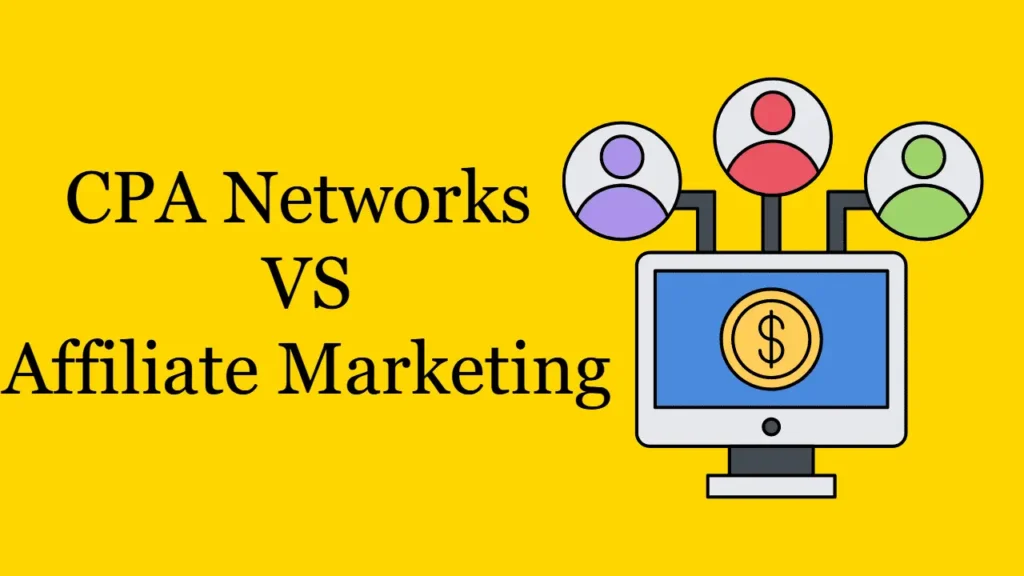
In the fast-evolving world of digital marketing, two strategies continue to dominate the landscape: CPA (Cost Per Action) marketing and traditional affiliate marketing. Both models offer lucrative opportunities for marketers, businesses, and entrepreneurs, but they come with unique advantages and challenges.
In this in-depth guide, we will explore the fundamentals of CPA and affiliate marketing, compare their pros and cons, and discuss the trends shaping the industry in 2025. Whether you are a seasoned marketer or a beginner looking to dive into the world of online monetization, this article will provide valuable insights to help you make informed decisions.
What Is CPA Marketing?
CPA marketing, or Cost Per Action marketing, is a type of performance-based advertising where affiliates earn a commission when a specific action is completed. This action could be filling out a form, signing up for a free trial, downloading an app, or making a purchase.
How CPA Marketing Works
- Affiliate Joins a CPA Network – Marketers sign up for CPA networks such as MaxBounty, PeerFly, or CPAlead to access available offers.
- Choose an Offer – The affiliate selects an offer that aligns with their traffic source and audience.
- Promote the Offer – Promotion methods include PPC advertising, social media marketing, email marketing, and SEO strategies.
- Earn Commission – When a user completes the required action, the affiliate earns a predetermined commission.
Pros of CPA Marketing
- Lower Barrier to Entry – Unlike traditional affiliate marketing, CPA does not always require a sale to generate earnings.
- Higher Conversion Rates – Since actions like filling out a form are easier than making a purchase, conversions are typically higher.
- Diverse Offers – CPA networks provide a wide range of offers, including lead generation, free trials, and app downloads.
- Less Risk for Advertisers – Since advertisers only pay for completed actions, they minimize risks and optimize their ad spend.
Cons of CPA Marketing
- Strict Approval Process – Many CPA networks have rigorous screening processes to prevent fraud, making it harder for beginners to get accepted.
- Payout Delays – Some networks have long payment cycles, making cash flow management difficult for affiliates.
- Limited Control Over Offers – Affiliates do not own the product and can lose access if the advertiser decides to pull the offer.
What Is Affiliate Marketing?
Affiliate marketing is a broader form of performance-based marketing where affiliates earn commissions for driving sales or leads to a business. This model is widely used by e-commerce stores, SaaS companies, and digital product creators.
How Affiliate Marketing Works
- Join an Affiliate Program – Marketers sign up for programs like Amazon Associates, ClickBank, ShareASale, or CJ Affiliate.
- Get Unique Tracking Links – Each affiliate receives a unique referral link to track their sales and commissions.
- Promote Products – Affiliates promote products through content marketing, YouTube videos, blogs, social media, and paid advertising.
- Earn Commission on Sales – Whenever a customer makes a purchase through the affiliate link, the marketer earns a commission.
Pros of Affiliate Marketing
- Scalability – Successful affiliates can generate passive income by promoting high-ticket or recurring commission products.
- Full Control Over Promotion – Affiliates can build their brand and audience without relying on a single network.
- Multiple Income Streams – With various products and niches available, marketers can diversify their revenue.
- Longer Cookie Durations – Many affiliate programs offer cookie tracking, allowing affiliates to earn commissions for purchases made days or weeks later.
Cons of Affiliate Marketing
- Requires Patience – Unlike CPA marketing, sales-driven affiliate marketing takes time to generate significant income.
- Lower Conversion Rates – Getting people to make a purchase is more challenging than completing a simple action.
- Intense Competition – Popular niches like health, finance, and e-commerce have thousands of affiliates competing for attention.
- Dependence on Merchant Policies – Commissions can be reduced, or programs can shut down at any time.
CPA vs. Affiliate Marketing: Which One Is Better in 2025?
Both CPA and affiliate marketing have their strengths and weaknesses, and the right choice depends on your goals, resources, and experience level.
| Factor | CPA Marketing | Affiliate Marketing |
|---|---|---|
| Ease of Earning | Easier (simple actions) | Harder (requires sales) |
| Earning Potential | Moderate | High (especially with recurring commissions) |
| Approval Process | Strict | More flexible |
| Traffic Requirements | Paid ads work well | Organic and paid traffic |
| Long-Term Sustainability | Short-term (offers can change frequently) | More stable (build your brand) |
Industry Trends in 2025
- AI-Powered Marketing – Automation and AI-driven analytics help affiliates optimize campaigns for better conversions.
- Voice Search and AI Assistants – More people use voice search, changing how affiliates create SEO content.
- Regulatory Challenges – GDPR, CCPA, and other privacy laws impact tracking, making first-party data collection essential.
- Rise of Micro-Influencers – Brands partner with niche influencers for more targeted affiliate marketing strategies.
- More Subscription-Based Offers – SaaS and membership programs continue to grow, offering affiliates recurring commissions.
Final Thoughts
Both CPA and affiliate marketing present incredible opportunities in 2025. If you prefer quick earnings with low-risk conversions, CPA marketing is a great option. However, if you want to build a sustainable, long-term online business, traditional affiliate marketing offers higher earning potential and brand-building opportunities.
The best approach? Diversify your income streams by leveraging both CPA and affiliate marketing strategies. By staying updated with industry trends, focusing on high-quality traffic, and refining your marketing skills, you can build a profitable online business in the years ahead.
Are you ready to take your digital marketing journey to the next level? Let us know your thoughts and experiences in the comments below!



